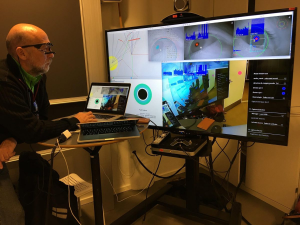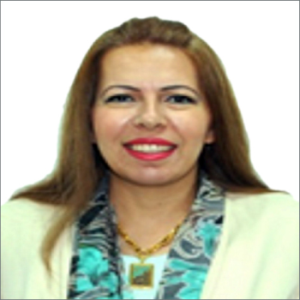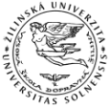Keynote - to be updated
to be announced
Abstract
to be added
Curriculum Vitae
to be added

Invited Speakers
Game Design and Innovative Inter-disciplinary Industry Opportunities Targeting Societal Impact across UAE and Middle East Educations
Abstract
This talk will discuss games design past, present and future with an emphasis on contributing to optimising AE Nationals' Education targeting Societal Impact via original industry-leading initiatives. Further it will discuss programming of games, with special emphasis on simulation, physics modelling, AI techniques and Methodology applied to gaming, computational intelligence, and physics related computer graphics.
Curriculum Vitae
This speaker for the 6th GAME-0N-ARABIA'2019 is Editor-in-Chief of the Serious Games Journal published by The European Alliance for Innovation (EAI.EU). He is active across game genres internationally, consulting both in academia and industry, and has been plenary keynote, reviewer, and steering/organising chair for other leading game and game-related conferences around the world. He is active as PhD Viva examiner of game-based doctoral thesis as well as European Commission Expert and Funded Project Assessor since 2004. His four-decades of research led to international and national € multimillion funded projects at the turn of the twentieth century and credits include a published patent on method and apparatus; realisation of a game-based industrial company; commercial product; and industrial adoption of product targeting social impact. The resulting product ‐ a computer-feedback game system that utilised bespoke natural interface interactions in healthcare ‐ was subject of scientific investigations whereby a randomized intervention study, reported "the computer feed-back training group showed a marked improvement that was up to 400% in the training specific performance" concluding "a remarkable increase in training specific performance. Clinical Rehabilitation Impact."
A leading contribution was in co-establishing a specific education relating creativity and technology within game-based design strategies across undergraduate, graduate, and doctoral levels. The Medialogy education became the largest recruiter of students (international and national) across three university campuses in Denmark ‐ his specific design resulted in low student drop-outs and high employment of graduates (including student own company industry start-ups ‐ in Games, Virtual Reality, Augmented Reality and more). Under the Medialogy education, he founded, funded, designed, manned and directed the "SensoramaLab Games, Virtual Reality, and Human Behaviour complex" in 2004.
The Benefit of Gamification in Education
Abstract
The traditional teaching method is a book, a piece of chalk and black board. Such teaching method currently has not suitable to our students and especially to science and technology students. We need to new means of information transfer more suitable to our students. It is important to use new teaching tools and methods to improve teaching effectiveness. Motivating students and difficulties of participation are present in higher education. Compared to many techniques to increase student motivation and participation, we found that Gamification technology is the most appropriate case. We could define gamification in a simple way as it is the use of game design element, game thinking and mechanics to enhance non-game context. This is the main function that gamification could provide to enhance a situation through the use of game mechanics, the benefits of gamification include a) increased engagement; b) higher motivation levels; c) increased interaction with the users (customer or employee); and d) greater loyalty.
Curriculum Vitae
Dr.Rula Al Azawi is Associate Professor in the College of Technological Innovation at Zayed University. Dr.Rula received her Ph.D. in Intelligent Software Engineering
(Game Development Methodology) at De-Montfort University ‐ UK in 2015.
Her Current research direction involves in the field of Artificial intelligent, Software Engineering, Game Design, Serious Game, Educational Game, Game Metrics,
Multi-Agent System and STEM education. Her current research in the Augmented Reality, Virtual Reality and mix Reality.
She has around twenty years of teaching experience as senior lecturer and Associate Professor with proficiency in teaching several computer science topics with
affiliation of UK Universities.
She worked in Quality Assurance to create Self Evaluation Document (SED) for computing department at Gulf College and with Ministry of Higher Education in Oman for
licensing academic program for Bachelors of Software Engineering. In the past, she worked as a Program Leader for the Computer Science department in Gulf college
for eleven years.





